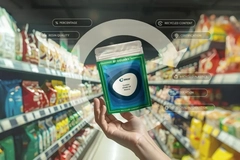EU pushes CLP rule updates to 2028 to ease industry burden
Key takeaways
- EU Council’s “Stop-the-clock” law delays all updated CLP rules to January 1, 2028, giving businesses more time and legal certainty.
- The legislation is part of the Omnibus VI package to ease burdens on the chemicals and packaging sectors, especially SMEs.
- The law’s goals are to reduce compliance costs, support competitiveness, and keep high health and environmental safeguards.

The Council of the EU has approved pushing back the start date for several updated rules in the EU’s Classification, Labelling and Packaging (CLP) Regulation. The newly adopted law provides more time and legal certainty to businesses and will now take effect in January 2028.
The “Stop-the-clock” legislation postpones all the dates of application of transitional provisions for relabeling, mandatory formatting requirements, advertisements, online and distance sales, and labeling of fuel pumps.
“The newly adopted law thus provides more time and legal certainty to economic operators active in the chemicals sector, including the packaging industry,” an EU official tells Packaging Insights.
In the CLP regulation, as revised in 2024, the dates of entry into application of these provisions were July 1, 2026 for some and January 1, 2027 for others. The original dates had reportedly caused a “significant burden” to the industry and companies, especially to SMEs.

Supporting the chemical value chain
The Stop-the-clock legislation is the first part of the “Omnibus VI” package submitted by the European Commission (EC) in July. The Danish Presidency treated the legislative proposal with “utmost priority,” with the Council saying the changes bring “significant and urgent” implications for businesses.
The co-legislators adopted this amending regulation without making any changes to the EC’s proposal.
“The new regulation also gives more time to the EU co-legislators (Council of the EU and European Parliament) to agree on the other substantive changes to the CLP regulation in the second part of the Omnibus VI legislative package, which is currently under negotiation and for which the Council agreed on a mandate on November 5,” says the EU source.
“The ultimate goal — once the whole legislative package is adopted by the co-legislators — is to reduce compliance costs and administrative procedures for businesses across the chemical value chain, while preserving safeguards for human health and the environment”.
Strengthening competitiveness
Marie Bjerre, Minister for European affairs of Denmark, adds: “The EU’s chemical sector is a cornerstone of Europe’s economy, driving innovation, growth, and thousands of high-value jobs across the internal market.”
“With the stop-the-clock-adoption, we ensure time and legal certainty for businesses while we make the necessary simplifications that will strengthen the sector’s competitiveness and maintain high standards of safety.”
The legislative act will be published in the Official Journal of the EU in the coming days and enter into force on the twentieth day after this publication.












